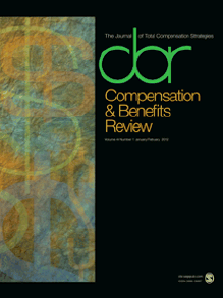Do Bonuses Matter?
How important is handing out bonuses for an organization to become and stay successful for a longer period of time?
André de Waal, Associate Professor in the Maastricht School of Management, investigates in his article “Bonuses Don’t Matter . . . in a High-Performance Organization,” published in the May/June 2012 issue of Compensation & Benefits Review. To see the Table of Contents, click here.
Ever since the financial scandals that rocked the business world and the worldwide financial crisis that followed, the debate on the effects of bonuses and the role of reward systems has divided academics and practitioners alike. On one side are the proponents of bonuses, who state that monetary rewards increase productivity and organizational performance. On the other side are the opponents, who state that bonuses create higher pay inequality with as result greater manager and employee turnover, with less than desirable long-term effects. In the polemic between proponents and opponents, a key question regarding bonuses is often overlooked: How important is handing out bonuses for an organization to become and stay successful for a longer period of time? This question can be answered by studying the results of research into the characteristics of high-performance organizations.
Read the complete article in Compensation & Benefits Review, and click here to sign up for e-alerts and receive up-to-date analyses and information on salary and wage trends, labor markets, pay plans, incentive compensation, legal compliance, retirement programs, and health care benefits.
























































































